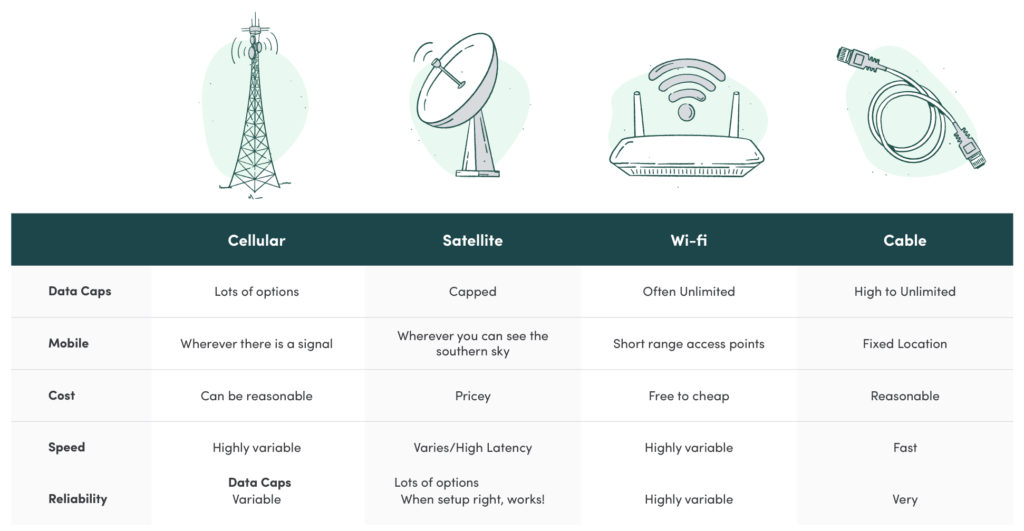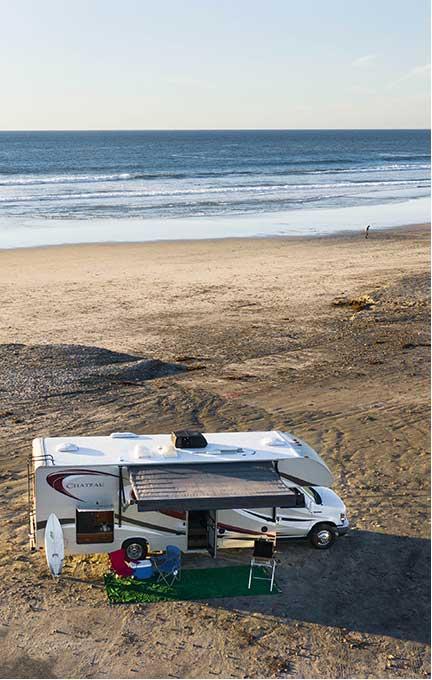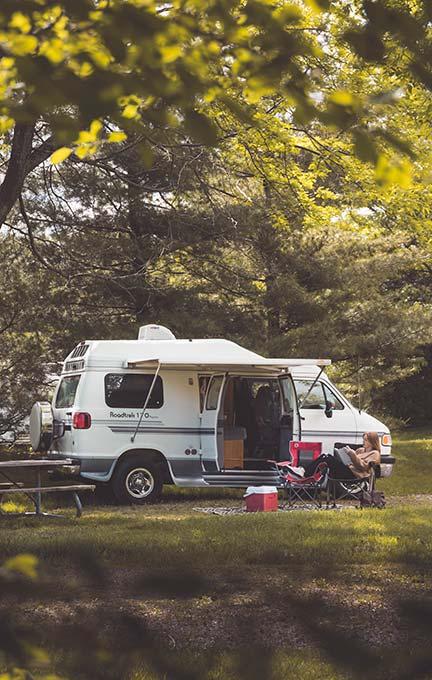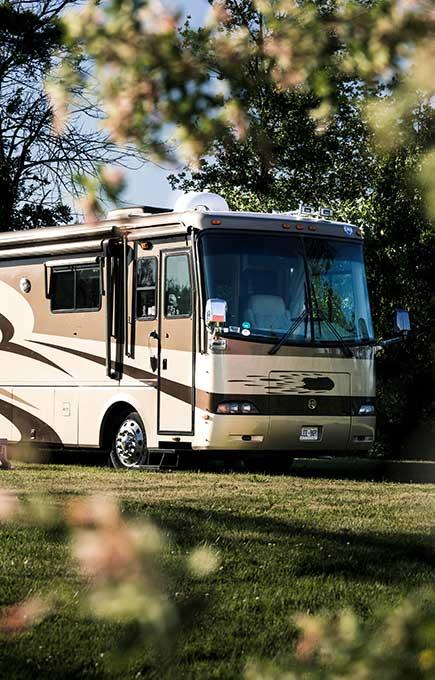RVing is about unplugging and getting out in nature, but that doesn’t always mean that we want to completely disconnect from the outside world. For many, it’s important to stay connected to the internet while on the road.
Whether you need to be online for work or play, you have four options.
- Cellular
- Satellite
- WiFi
- Cable

1. Cellular Internet
Best For: places with good cell reception
Not Ideal For: streaming
Cost: $35 – $100 per month
Cellular internet uses the same connection as your phone, so if you have good reception on your phone, you can likely get good quality internet with a personal mobile hotspot or from a separate hotspot device.
Personal Hotspot
Many phone plans have a personal hotspot feature included. That means no additional equipment is required! However, the data usage of any device connected to your hotspot counts towards the data allowance of your plan. Check with your cell phone provider about mobile hotspot rules and allowances.
Jetpacks and Mobile Hotspot Devices
Some carriers create separate devices that use cellular data to connect other devices to the internet via WiFi. This is similar to connecting to the WiFi network at your home. Unlike personal mobile hotspots, these devices are considered a service add-on and are not included in your phone plan.
2. Satellite Internet
Best For: rural areas with little cell reception
Not Ideal For: camping in a forest/places with obstructed sky views
Cost: $50 – $150 per month
Satellite Internet requires a satellite dish mounted on the top of your RV. This is how signals will be sent and received to and from a satellite in space. Because it relies on a satellite in the sky as opposed to cell towers with limited range, you’ll be able to get a signal almost anywhere. For the satellite to work, however, conditions have to be right, as you must have an unobstructed view of the Southern sky to get a decent connection.
3. RV WiFi
Best For: RVers who don’t need a constant internet connection; people on a budget
Not Ideal For: RVers who rely on the internet for work
Cost: free
You’ll find free WiFi networks at RV parks, rest stops, and other public places. The great news is it’s free, and all you have to do is sign into the network to get connected. The bad news is that it can be unreliable. Not everywhere will have free WiFi, and even if they do, it may be a dodgy connection, especially at times when everyone is trying to get online.
4. Cable Internet
Best For: long-term stays
Not Ideal For: those in need of internet while on the move
Cost: $50 – $100 per month plus the price of a modem/router
Cable internet is what you’ll find in most households, and you may come across it offered at some parks. This type of internet is wired using telephone lines and fiber optic cables. Because you need a physical cable, it’s not available in too many places, and you can’t just take it wherever you go. When it is available, though, it is the fastest and most reliable option. Typically, there are no data limits, so you could stream Netflix all day if you wanted.
Which Internet Option is Best for You?
Before deciding what RV internet option is best for you, consider two things:
- Data Usage
- Location
Data Usage
How frequently will you be using the internet? Do you mainly use it for navigation, or are you spending hours a day online for work? How often you’re using the web also has a major impact on how much data you use.
The amount of data your plan offers will greatly dictate how long you can use the internet for and for what. Certain online tasks require more data than others. Video streaming typically needs a stronger connection and uses up more data than browsing mostly-text webpages.
Calculate how much data you need before you hit the road.
Location
Where are you going? And where will you be staying? Whether you’re boondocking or staying at RV parks will impact your RV internet decision.
Find Your Connection
Going on an RV trip doesn’t mean having to give up your internet connection. Whether you’re venturing across the country or just a few miles down the road, know that you have internet options.








